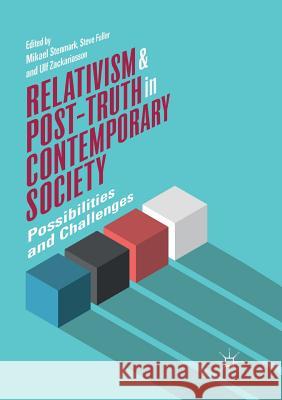Relativism and Post-Truth in Contemporary Society: Possibilities and Challenges » książka
topmenu
Relativism and Post-Truth in Contemporary Society: Possibilities and Challenges
ISBN-13: 9783030072148 / Angielski / Miękka / 2019 / 199 str.
Kategorie BISAC:
Wydawca:
Palgrave MacMillan
Język:
Angielski
ISBN-13:
9783030072148
Rok wydania:
2019
Dostępne języki:
Ilość stron:
199
Waga:
0.26 kg
Wymiary:
21.01 x 14.81 x 1.14
Oprawa:
Miękka
Dodatkowe informacje:
Wydanie ilustrowane











